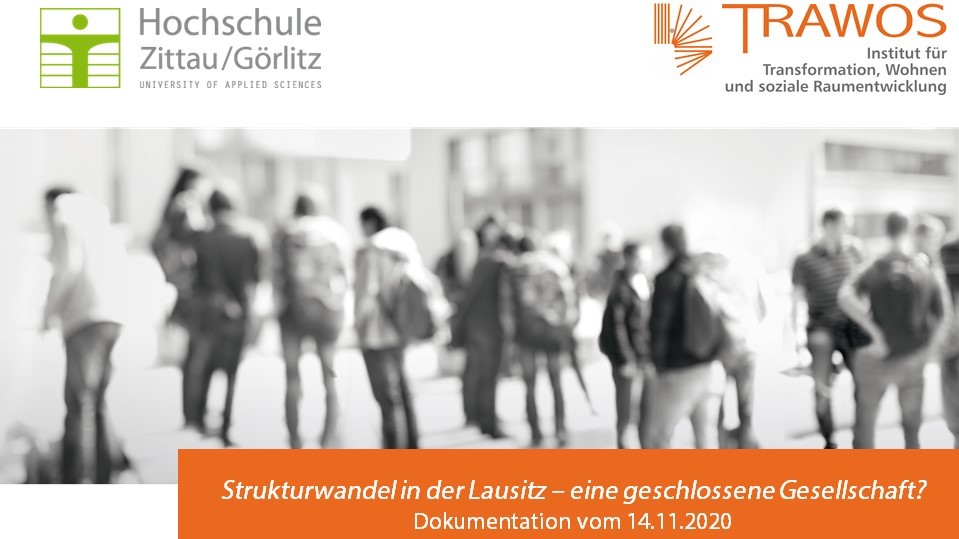The documentation of the digital table discussion "Structural change in Lausitz - a closed society?" from 14.11.2020 is now available.

The motto of the November conference was "Open society - open change? What topics and structures are needed for sustainable structural change in Lausitz?" was itself confronted with the challenge of change this year: Due to the pandemic conditions, only some of the originally planned events were feasible. The panel "Structural change - closed society?" was moved to the digital space and took place as a video conference on November 14 from 10:00 to 12:30. Our aim was to explore and discuss the importance of gender-sensitive and intergenerational participation in Lausitz's structural change with a view to the development of an open society. We assume a variety of problems and challenges that - contrary to hegemonic political discourses - cannot be reduced to the coal phase-out and the creation of new jobs. In the course of the panel, the extent to which structural change in Lausitz is a closed process and what premises should be set for opening it up were examined. The aim of the presentations and discussions was to make visible those who are not or not yet sufficiently seen and, in particular, to ask how their perspectives can be successfully integrated.
Viktoria Luh from the Institute For Advanced Sustainability Studies e.V. (IASS) Potsdam, Anikó Popella from the German Children and Youth Foundation (DKJS) Dresden and Pauline Voigt from the project "F wie Kraft" (Zukunftswerkstatt Lausitz and TRAWOS Institute) provided input. This was followed by three virtual table discussions on various aspects of structural change. The event was moderated by Dr. Hanna Haag, Katrin Treffkorn, Marie Melzer and Susanne Lerche (all from the TRAWOS Institute).
You can now find the documentation of the panel here on our conference website!